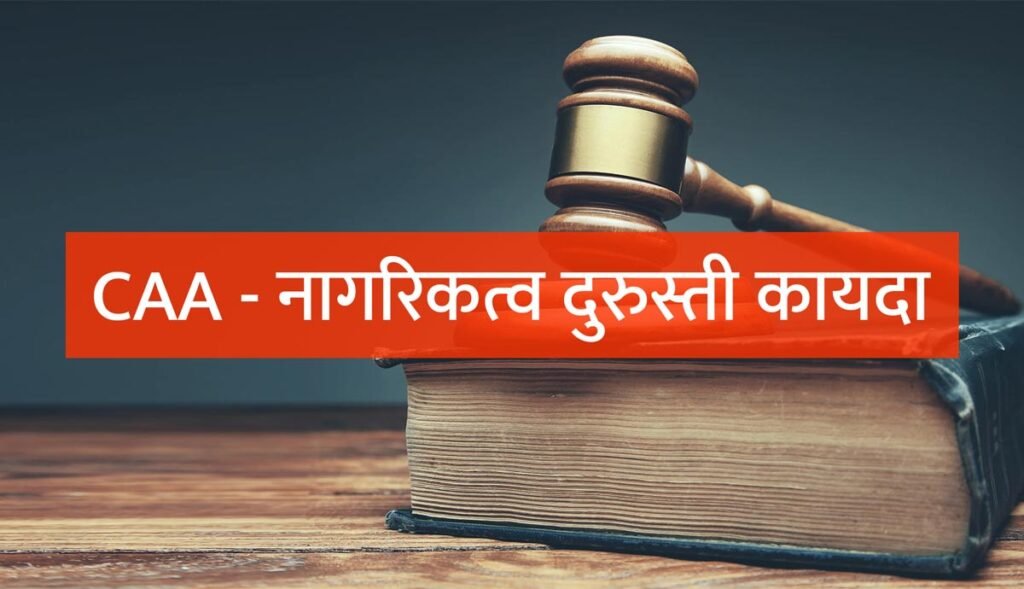What is the Citizenship Amendment Act?
On Monday, the Union Home Ministry officially released the Citizenship Amendment Act (CAA) rules. The CAA, a crucial component of the BJP’s 2019 manifesto, had been passed by Parliament in the same year. With unveiling these rules, known as the Citizenship (Amendment) Rules, 2024, people eligible under CAA-2019 can now apply for Indian citizenship, marking a pivotal step in providing refuge to the persecuted.
“These rules, called the Citizenship (Amendment) Rules, 2024, will enable the persons eligible under CAA-2019 to apply for the grant of Indian citizenship,” said the Home Ministry.

Check some of the essential details about the Citizenship Amendment Act here:
Enacted by the Modi government in 2019, the Citizenship Amendment Act (CAA) endeavors to offer Indian citizenship to persecuted non-Muslim migrants. This includes Hindus, Sikhs, Jains, Buddhists, Parsis, and Christians who migrated from Bangladesh, Pakistan, and Afghanistan and arrived in India before December 31, 2014. The rules now provide a framework for the application process for those eligible under CAA-2019.
The Citizenship Amendment Act (CAA) does not apply to Indian citizens. Its primary objective is to provide Indian citizenship to certain foreigners who have encountered religious persecution in neighboring countries based on their faith.
The legislation applies to those “forced or compelled to seek shelter in India due to persecution on the ground of religion.”
ALSO READ: India’s First Underwater Metro.
The CAA excludes regions under the Sixth Schedule of the Indian Constitution and areas covered by the Inner Line Permit system. This exclusion aims to safeguard the interests of the tribal and indigenous communities in the North-Eastern region. Individuals residing in these areas will not be eligible to apply for Indian citizenship under the CAA.
In the past six years, India has granted citizenship to around 2,830 citizens from Pakistan, 912 from Afghanistan, and 172 from Bangladesh. Many of these individuals belong to the majority communities in their respective countries.
The CAA is not aimed at any particular religious community from abroad. Instead, it establishes a framework for migrants who might have been considered “illegal” otherwise, providing them with the opportunity to apply for Indian citizenship, provided they meet certain conditions.
The law has been met with widespread opposition and protests nationwide. Numerous opposition parties, including the Congress party, have criticized the law, labeling it “discriminatory.” There are concerns about the timing of the rule notification, with allegations that it may be intended to influence the upcoming Lok Sabha elections in West Bengal and Assam.
We’ve created this content for informational purposes only, and it reflects the views of its respective authors/entities (freelancers/interns) and not those of Winspire Magazine. Winspire Magazine does not endorse or vouch for the accuracy of the information provided in this content. It is the reader’s responsibility to verify and ensure the information is correct and up-to-date. Winspire Magazine disclaims any liability or responsibility for any damages or losses from using this content. Therefore, readers should take all necessary steps to verify the accuracy and reliability of any information presented in this content.


